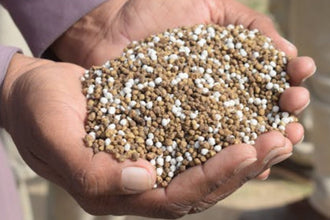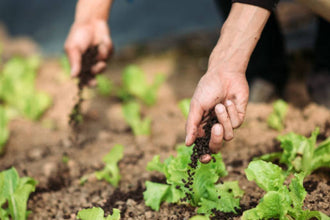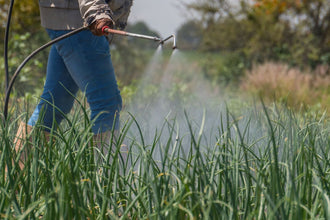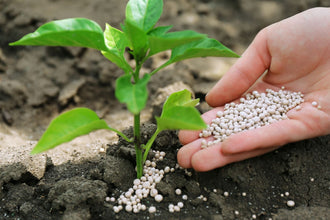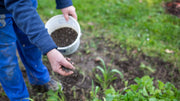
Chicken manure vs. fish emulsion is probably one of the biggest arguments you'll hear among organic gardeners at the local nursery. Both come from natural sources and promise better soil, but they work totally different from each other. Getting this right can save you some serious cash and help your garden do way better.
Most people just use whatever their friend down the street tells them to try or they grab whatever organic stuff they see first at the store. That usually ends up being a waste of time and money. The reality is that each organic fertilizer is really good at certain things but not so great at others.
Understanding How Organic Fertilizers Actually Work
Organic fertilizers are nothing like the synthetic stuff because soil bugs have to break them down first before your plants can even use the nutrients. This takes some time but creates benefits that last way longer than chemical fertilizers ever could.
Chicken manure packs a lot of nitrogen, decent phosphorus, and not as much potassium. You're looking at something like 4-2.5-2 for the NPK numbers, which makes it awesome for getting plants to grow lots of leaves and stay healthy overall. All that organic stuff in chicken manure also makes your soil hold water better and get fluffier.
Fish emulsion gives you more balanced nutrition with NPK around 5-1-1. This stuff breaks down super fast and feeds your plants almost right away. Since it's already liquid, plant roots can suck up those nutrients pretty quick.
The big difference is how fast these fertilizers give up their goods. Chicken manure keeps feeding your plants for months like a slow drip. Fish emulsion hits hard and fast but you need to keep applying it more often.
Chicken Manure vs. Fish Emulsion: How Fast Plants Get Fed
Speed really matters when your plants are hungry. Fish emulsion totally wins if you need results right now because it's already liquid and plants can drink it up in just a few days. You'll usually see greener leaves and better growth within a week.
Chicken manure takes its sweet time. The nutrients become available bit by bit as those tiny soil creatures chew through all the organic matter. This can take weeks, but the good stuff lasts way longer. Plants that get chicken manure grow stronger roots and fight off diseases better.
Rain affects both of these differently. Fish emulsion can wash right out of your soil if you get a heavy storm before plants absorb everything. Chicken manure sticks to soil particles and stays put even when it pours.
Temperature matters too. Fish emulsion works fine when it's cool and soil bugs aren't very active. Chicken manure needs warm dirt to get going, so it's pretty useless if you apply it too early in spring.
What It Actually Costs You
If you're watching your wallet, you need to think about what you pay upfront and what you save long term. Fish emulsion usually costs more per use because you have to put it on every couple weeks during growing season. One bottle might last your garden about a month.
Chicken manure costs less to start with and feeds your garden way longer. One application can keep your plants happy for six to eight weeks. That makes it a much better deal if you've got a big garden space.
Storing this stuff costs money too. Fish emulsion needs to stay cool and dry, and once you open it, the clock starts ticking. Chicken manure can sit outside in a basic container and actually gets better as it ages.
Don't forget about your time either. Fish emulsion means mixing and applying every few weeks all season long. Chicken manure goes on maybe three times a year, which gives you more time for other garden stuff.
Building Better Soil for the Long Run
Good soil grows good plants, and this is where chicken manure vs. fish emulsion really shows their differences. Chicken manure works like a soil makeover that improves how water drains, how much moisture stays put, and how fluffy everything gets. All that organic matter feeds the good bugs that make soil really come alive.
Fish emulsion feeds plants just fine but doesn't do much for soil structure. It gets the job done for nutrition but doesn't build the kind of soil health that makes gardens run themselves.

The tiny living things in your soil go crazy for chicken manure. These helpful bacteria and fungi help plants stay healthy and absorb food better. Fish emulsion gives some of these benefits but not nearly as much.
How acidic or basic your soil is really affects what plants can actually use. Chicken manure tends to be a bit on the basic side, which works great if your soil is too acidic. Fish emulsion stays pretty neutral but can get acidic if you use it too much.
Matching Fertilizer to What You Grow
Different plants want different food, so picking between chicken manure vs. fish emulsion really depends on what's growing in your yard.
Leafy stuff like lettuce, spinach, and kale absolutely love chicken manure because it's loaded with nitrogen. The slow release keeps tender leaves from getting burned while keeping growth steady all season.
Plants that flower a lot usually like fish emulsion better because it gives quick nutrition without drowning them in nitrogen. Too much nitrogen makes plants grow leaves instead of flowers.
Fruit trees and berry bushes really benefit from chicken manure's long-lasting nutrition. The slow feed matches how long they take to grow and helps them develop strong branches.
Regular vegetable gardens do fine with either choice, but chicken manure gives you better value for big areas while fish emulsion works great for containers and raised beds.
How and When to Apply These Fertilizers
Getting the timing and method right makes a huge difference. Chicken manure should go on in early spring and get worked into the soil before you plant anything. This gives it time to break down and be ready when plants need it.
Fish emulsion works best when you stick to a regular schedule throughout growing season. Put it on every couple weeks when plants are growing hard, then back off as they mature.
Safety stuff matters with both. Fresh chicken manure has to age or compost first or it'll burn your plants and might have nasty bacteria. The commercial chicken manure fertilizer you buy is already safe to use.
Fish emulsion smells pretty bad, which bothers some people. The stink goes away in a day or two, but applying it when there's no wind keeps your neighbors happy.
Environmental Stuff and Being Sustainable
More gardeners care about environmental impact these days. Both chicken manure and fish emulsion come from sources that renew themselves, but they affect the environment differently.
Chicken manure usually comes from somewhere nearby, which cuts down on shipping costs and pollution. Lots of chicken farms are happy to let gardeners come get manure because it solves a disposal problem for them.
Fish emulsion often travels much farther from processing plants to stores. Making the liquid concentrate also takes more energy.
Both fertilizers help you garden more sustainably by cutting back on synthetic chemicals. They feed soil life and create healthier mini-ecosystems in your garden.
They're both good for reducing waste too. Chicken manure gives new purpose to farm waste that might otherwise be a problem to get rid of. Fish emulsion uses leftover fish parts that would just get thrown away.
Fancy Chicken Organic Fertilizer: The Premium Pelletized Solution
Why Fancy Chicken Stands Out From Regular Chicken Manure
Fancy Chicken takes everything good about traditional chicken manure and makes it even better. This premium pelletized organic fertilizer comes from sustainably raised chickens and gets processed into convenient, odor-reduced pellets that are way easier to handle than raw manure.
The 4-2.5-2 NPK formula gives your plants exactly what they need for strong growth and disease resistance. Each pellet slowly releases nutrients over weeks, feeding your garden consistently without the mess or smell that comes with fresh chicken manure.
Quality control makes Fancy Chicken different from other chicken-based fertilizers. Every batch gets tested for safety and nutrient content, so you know exactly what you're putting on your plants. No worries about harmful bacteria or inconsistent nutrition levels.
Application Benefits That Save Time and Money
Using Fancy Chicken pellets couldn't be simpler. Just scatter them around your plants and water lightly. The pellets break down gradually, releasing nutrients as your plants need them most.
Here's what makes application so convenient:
-
No mixing or measuring liquid concentrates
-
Works in any weather without washing away
-
Stores easily without refrigeration or special containers
-
Applies evenly with basic garden tools
-
Safe to handle without gloves or masks
One application feeds your garden for 4-6 weeks, which saves tons of time compared to weekly liquid fertilizer treatments. You can actually enjoy gardening instead of constantly worrying about feeding schedules.
The slow-release formula means no plant burn even if you accidentally use a bit too much. This forgives mistakes that would fry your plants with synthetic fertilizers or liquid concentrates.
Long-Term Soil Building That Fish Emulsion Can't Match
Fancy Chicken does way more than just feed plants. The organic matter in each pellet transforms your soil structure, making it hold moisture better while still draining properly. Heavy clay loosens up and sandy soil holds water longer.
Beneficial soil microbes absolutely love this stuff. These tiny helpers break down the organic matter and create nutrients that plants can actually use. They also protect plant roots from diseases and help them absorb minerals more efficiently.
Your soil pH gradually improves with regular Fancy Chicken use. Most garden plants prefer slightly alkaline conditions, and this fertilizer naturally moves acidic soil in the right direction without shocking your plants.
The soil-building benefits keep working long after the pellets disappear. Plants grown with Fancy Chicken develop stronger root systems and bounce back faster from drought, pests, and diseases. That means less work and worry for you.
Make Your Garden Choice Count
Choosing between chicken manure vs. fish emulsion doesn't have to be complicated when you understand what each fertilizer actually does for your plants and soil. Both work great in the right situations, but the best choice depends on your specific garden needs and goals.
Smart gardeners know that investing in quality organic fertilizer pays off season after season. Your plants get better nutrition, your soil improves year after year, and you spend less time dealing with plant problems. Whether you go with the long-lasting benefits of chicken manure or the quick action of fish emulsion, you're making a choice that supports both your garden and the environment.
Picking What Works for Your Situation
The winner in the chicken manure vs. fish emulsion fight really depends on your specific garden situation. Think about your budget, how big your garden is, what you're growing, and how much time you want to spend applying fertilizer.
Go with chicken manure if you've got a big garden, want to improve your soil long term, don't want to apply fertilizer very often, or mostly grow vegetables and leafy greens. The money you save and soil benefits make it the better choice for most home gardeners.
Pick fish emulsion if you grow stuff in containers, need fast results, have a small garden, or want precise control over when plants get fed. Container gardeners especially benefit from the liquid form and how fast it works.
Lots of smart gardeners use both strategically. They put down chicken manure as their base fertilizer in spring, then add fish emulsion during peak growing times when plants need extra food.
Your soil test can help you decide too. Sandy soil benefits more from chicken manure's organic matter, while clay soil might do better with fish emulsion's gentler approach.
Both fertilizers will grow beautiful, healthy plants when you use them right. The trick is matching the fertilizer to what you need and applying it properly. Try one option this season and see how your plants respond. You can always change things up next year based on what you learn.




